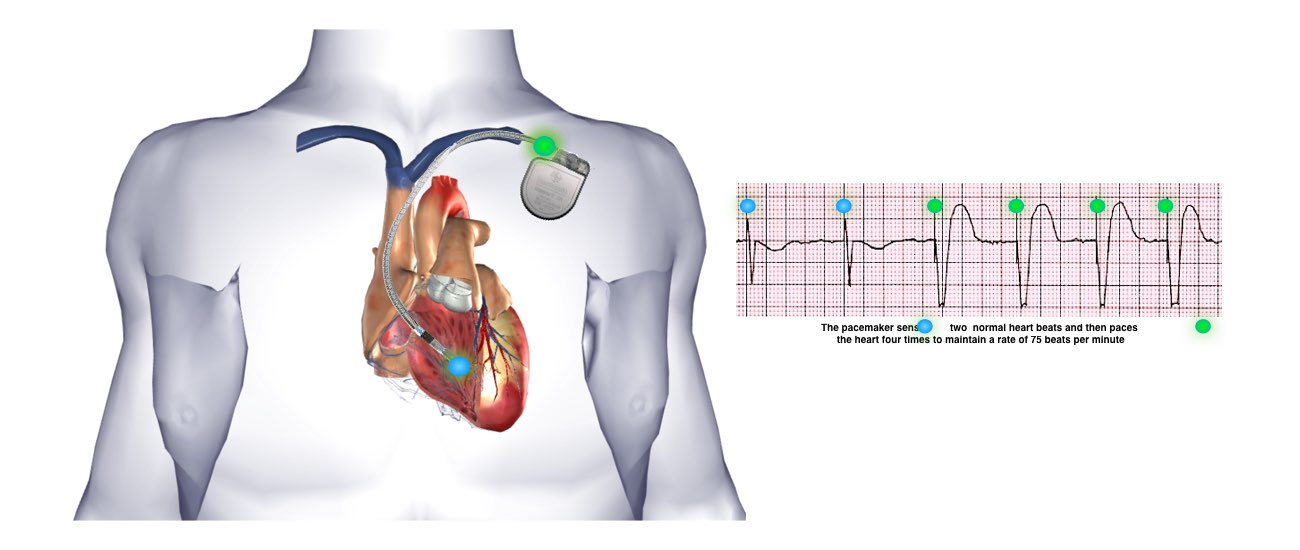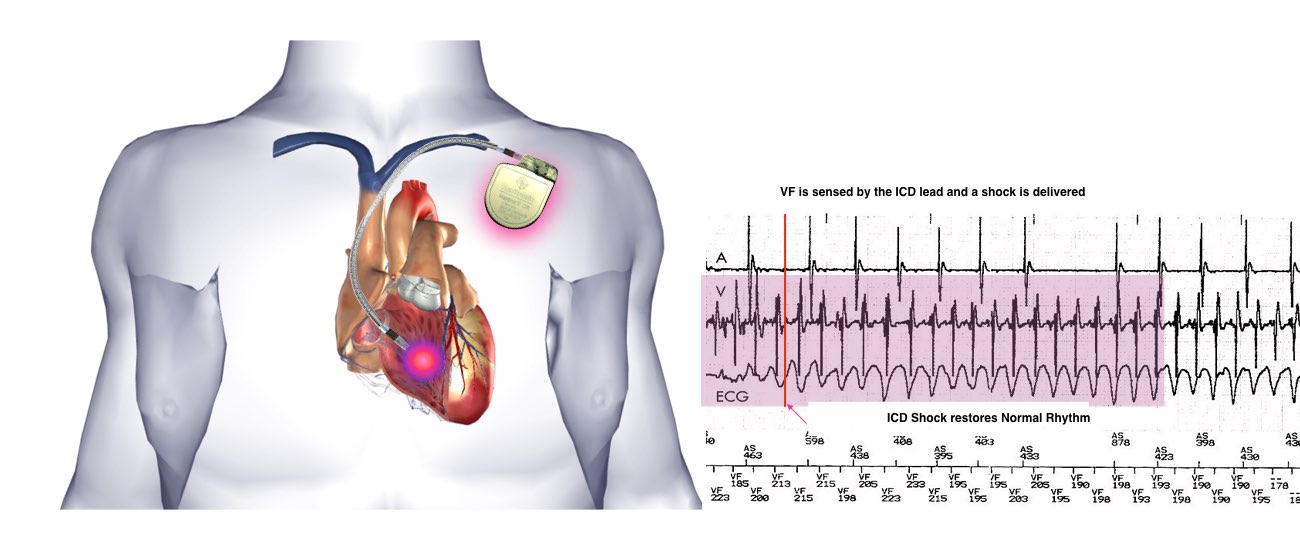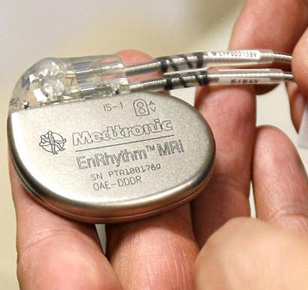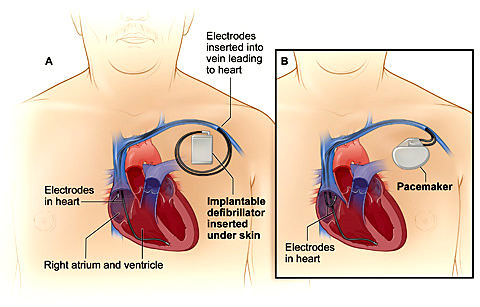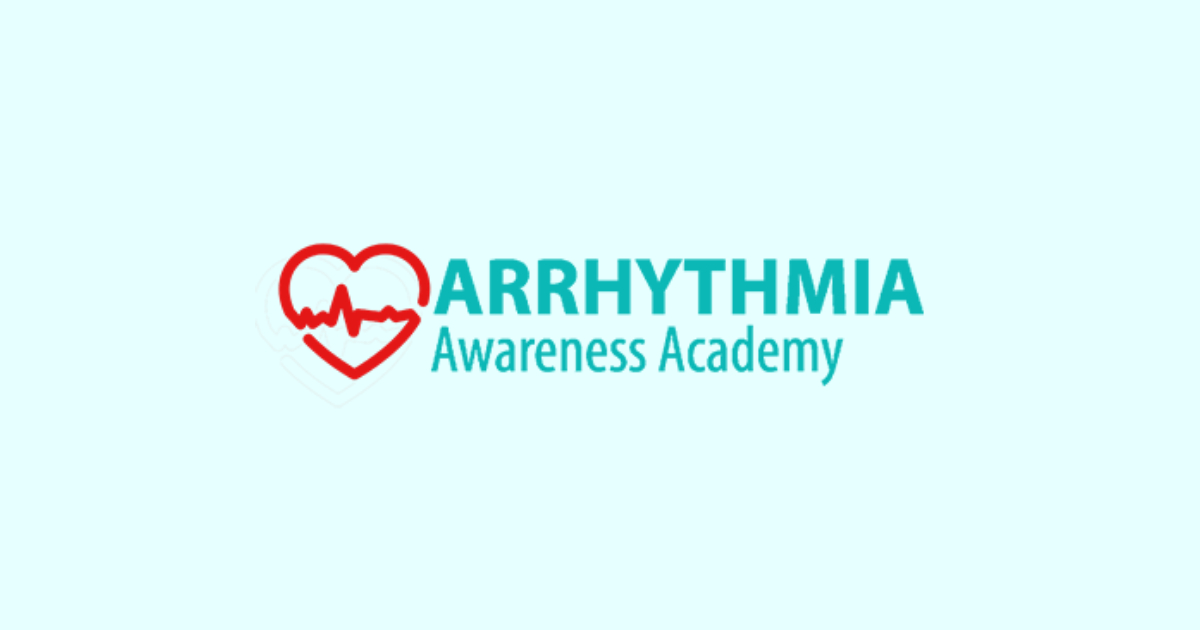An ICD, or Implantable Cardioverter Defibrillator, is a device implanted in the body that can detect and terminate fast heart rhythms.
An ICD has two main parts:
1. main body (battery and electrical circuitry)
2. leads
The main body of the device is usually implanted under the skin in your shoulder region. The leads are connected to the device at one end and to your heart at the other end. The leads are able to transfer information about your heart rhythm to the device. The device will determine what rhythm your heart is in and will deliver therapy through the leads when necessary.
You may have experienced or be susceptible to symptoms such as palpitations, dizziness, shortness of breath or blackouts. You may have had an Electrophysiology Study (EPS) to determine the cause of these symptoms. It has been found that you have experienced or are susceptible to serious arrhythmias that may cause these symptoms or, if left untreated, may be fatal. The function of the ICD is to treat these arrhythmias if you develop them.
The ICD can not prevent you from going into one of these fast heart rhythms. The device will recognise these fast abnormal rhythms and will deliver therapy to try to regulate your heart. You may or may not feel your usual symptoms before you receive therapy from the device. The device acts quickly, however many people will develop symptoms such as dizziness, palpitations or blackouts before the device has delivered therapy.
Most ICDs are capable of delivering 4 types of therapy for your heart.
If your heart goes too slowly:
1. The ICD can act as a pacemaker to prevent your heart dropping below a certain rate
If your heart is going too quickly:
2. The ICD can deliver a sequence of very fast paced beats or “Anti-Tachycardia Pacing” (ATP)
3. The ICD can deliver a low energy shock or “Cardioversion”
4. The ICD can deliver a high energy shock or “Defibrillation”
A shock is delivered if your heart has gone into an arrhythmia and requires this type of therapy to regulate your heart. Most people describe shocks as feeling like a “kick in the chest by a horse”. The feeling you get from a “low energy” shock and a “high energy” shock may not vary. The feeling is momentary but very uncomfortable, however it is important to remember that this is a last resort for the device to regulate your heart from a potentially lethal arrhythmia.
ICDs are able to deliver several shocks in quick succession if necessary.
Any person touching you when a shock is delivered should not be harmed by the shock.
If you do have a shock, you should follow the directions detailed on your “Instructions for shock therapy” card.
You should remember that this device has been implanted to ensure you can keep on living a normal, active life. There are a few activities that you will be unable to perform however most of your life will continue just as it had before the ICD was implanted. It is important to follow the advice your cardiologist has given you in relation to returning to certain activities.
Medications – The ICD is implanted to terminate abnormal rhythms. It can not prevent these abnormal rhythms from starting. Your cardiologist will have prescribed specific medications to try to prevent these arrhythmias from starting. It is very important to take all the medications your cardiologist has prescribed. Any changes to your medications should be made in consultation with your cardiologist.
Driving – You should discuss with your cardiologist as to when you can resume driving and you should not recommence driving until you have been advised to do so by your cardiologist. In general, transport regulations do not permit commercial driving (taxi, bus, truck etc) after ICD implantation.
Working – The length of time you will be required to stay off work will vary on an individual basis, depending mainly upon the type of work you do. You may be able to return to light duties as early as two weeks after the implant. Your cardiologist will discuss with you how long until you may return to work.
Exercising and Sexual Activity – Current ICDs are able to distinguish between normal heart rate increases caused by exercise, activity or intimacy and those caused by an abnormal heart rhythm. You should not receive any shocks for normal increases in heart rate.
You should begin gentle arm and shoulder movements as early as possible after the implant. This may cause some discomfort, however it will help to keep this area flexible. Sports such as tennis, golf, boating, swimming and fishing should not be played until your wound has healed, usually about one month post implant. If you participate in hunting or shooting sports, the rifle should be rested on the opposite shoulder to that of your device.
Most patients are able to resume normal sexual activities when the wound has healed. If you receive a shock during intercourse your partner may feel a tingle or your muscle spasm however they should not be harmed.
Travelling – You must remember to take your ICD identification card when you travel. This provides information to any medical or security staff that you may encounter in your travels. The walk-through security gates at airports may detect the metal of your device and sound an alarm. . You can show your ID card and ask for a hand search. The security gates should not affect the functioning of the device, however it is recommended that you walk briskly through these gates. The hand-held security wands may temporarily interfere with the function of the device. Always show security staff your ID card and ask for them not to hover over your ICD with these hand-held devices. Alternatively, you may ask for a hand search.
Medical Procedures – It is very important that your doctors (and dentists) are aware of your ICD before any procedure. Sometimes your device may need to be reprogrammed, or you may be required to take antibiotics.
Emotions – You are likely to experience many different emotions as a result of your condition and the implantation of an ICD. Feelings of depression, anxiety, anger and fear are common but may be eased by learning about your condition and your device, preparing for emergencies and by talking to your family, ICD clinic staff and your doctors about your concerns.
For the safety of yourself and those around you, there are some restrictions to your activities. ICDs use electrical signals to detect your heart rhythm. There are external sources of electromagnetic signals that may interfere with your device and are safest to avoid. Equipment and situations that may cause a problem with your ICD include: electric welding, industrial equipment, poorly grounded electrical appliances, lithotripsy, therapeutic ultrasound and electrosurgical instruments. Mobile and portable telephones should be used with caution. It is recommended that you use the ear on the opposite side to your device and do not carry the phone in your breast pocket above the ICD.
If you have received an MRI conditional device, you can undergo MRI scan safely.
Batteries in these devices typically last for 7-8 years, however this is dependent on the amount that the device is used. The more the device is used, the shorter the life of its battery. When the battery does run down, an ICD replacement procedure will be organised for you. This procedure is similar to the implant although in most cases the original leads are left in position and connected to the new device.
The battery status is monitored every time you come to get your ICD checked.
